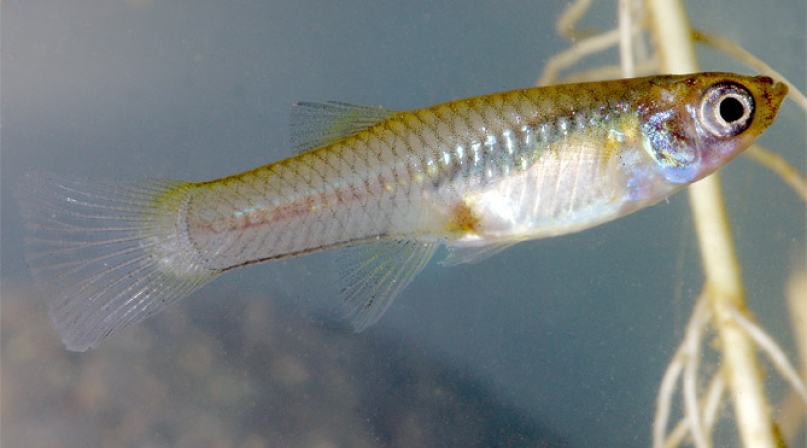Congress splits on Zika funding
Upcoming Events
Related News

A popular and effective biological control method of mosquitos is the installation of Mosquito fish or Gambusia into the water body as seen here. This fish is the most widely stocked fish species on the planet.
Senate allocation nearly doubles the House's allocation to fight Zika
As the official start of summer looms, a pesky mosquito continues to cause concern— dividing Congress and demanding the full focus of our nation’s public health infrastructure.
The Aedes species (Aedes aegypti and Aedes albopictus) mosquito is the carrier of the Zika virus, which can bite pregnant women, infecting their fetuses and causing serious birth defects such as microcephaly.
These mosquitoes, which also spread dengue and chickungunya viruses, have already infected almost 200 pregnant women in the continental U.S., all of whom were bitten when they were outside the U.S.
The CDC warns that these imported cases could result in a local spread of the virus in parts of the U.S. where Aedes mosquitoes are known to exist. There is currently no vaccine for the Zika virus.
County-supported public health departments have been working with state and federal partners to fight the Zika virus despite uncertain funding.
The Centers for Disease Control and Prevention (CDC) recently announced it would have to shift $44.2 million from state and local public health emergency preparedness (PHEP) grants to pay for the Zika response. The majority of the nation’s 2,800 local public health departments are county-supported, and have already lost almost 52,000 jobs since the Great Recession according to the National Association of City and County Health Officials (NACCHO). A recent study by NACCHO indicated that half of local health departments expected a further decrease in staffing capacity as a result of the PHEP cuts.
Meanwhile in the nation’s capital, Congress remains divided on how best to provide emergency funding to combat the Zika virus. Last month, the House and Senate each passed bills and must now work to reconcile extreme differences through a process known as a conference committee.
The Senate advanced a $1.1 billion package of emergency spending, which would be in addition to $589 million redirected from the Obama administration's last emergency funding request for the Ebola virus. The funding would last until the end of FY17, or Sept. 30, 2017.
Learn More
The House, on the other hand, approved a Zika funding package at almost half this amount. Its $622 million package would only last through the end of this fiscal year, or Sept. 30.
The House offset the spending by using unspent Ebola money, as well as unused administrative funding within the Department of Health and Human Services (HHS).
The White House has issued a veto threat on the House’s Zika funding bill, which would provide only about one-third of the funding contained within the President Obama’s $1.9 billion request for Zika.
While Congress debates funding, counties continue to be on the front lines by supporting public health efforts to minimize the potential spread of the Zika virus through mosquito eradication aimed at the Aedes species and public education. In addition, counties are being encouraged to work with their state and local colleagues on emergency preparedness plans.

Attachments
Related News

Drug tracking software helps counties identify trends, save lives
Florida counties are using an artificial intelligence tool called Drug TRAC to track and report drug trends, with the aim of providing quicker outreach and saving lives.

White House Executive Order establishes national substance use disorder response
On January 29, the White House issued an Executive Order (EO) establishing the Great American Recovery Initiative, a new federal effort aimed at coordinating a national response to substance use disorder (SUD).

USDA and HHS release new dietary guidelines
On January 7, U.S. Department of Agriculture Secretary Brooke Rollins and U.S. Department of Health and Human Services Secretary Robert F. Kennedy, Jr. unveiled the new Dietary Guidelines for Americans, 2025–2030.